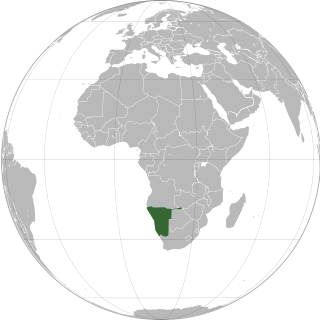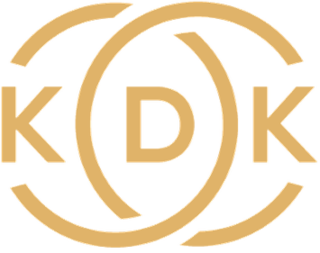A national human rights institution (NHRI) is an independent state-based institution with the responsibility to broadly protect and promote human rights in a given country. The growth of such bodies has been encouraged by the Office of the United Nations High Commissioner for Human Rights (OHCHR), which has provided advisory and support services, and facilitated access for NHRIs to the United Nations (UN) treaty bodies and other committees. There are over one hundred such institutions, about two-thirds assessed by peer review as compliant with the United Nations standards set out in the Paris Principles. Compliance with the Principles is the basis for accreditation at the UN, which, uniquely for NHRIs, is not conducted directly by a UN body but by a sub-committee of the Global Alliance of National Human Rights Institutions (GANHRI) called the Sub-Committee on Accreditation. The secretariat to the review process is provided by the National Institutions and Regional Mechanisms Section of the OHCHR.
The National Human Rights Commission is the national human rights institution (NHRI) accredited at the United Nations with "A" status by the International Co-ordinating Committee of NHRIs. It is also a voting member of the International Ombudsman Institute, and its president thus is considered as the national ombudsman for Mexico.

The Ombudsman's Office of Peru is an autonomous constitutional organization created during the presidency of Alberto Fujimori that was added to the 1993 Constitution of Peru. It is based in the city of Lima, capital of Peru, and has representation throughout the Peruvian territory.
The Human Rights Commission is the national human rights institution (NHRI) for New Zealand. It operates as an independent Crown entity, and is independent from direction by the Cabinet.

The Romanian Ombudsman is an independent institution of the Government of Romania, responsible for investigating and addressing complaints made by citizens against other government institutions.

Delmi Álvarez is a Galician photojournalist and documentary photographer (he/him). His work documents migration phenomena, especially of the Galician diaspora, and environmental and human rights issues. He has organized and curated several photography projects with other international photographers.

Lesbian, gay, bisexual, and transgender (LGBT) people in Namibia have limited legal protections. Sexual contact between men is criminalised within Namibia, although this law is generally unenforced. Discrimination based on sexual orientation is banned in Namibia but not for gender identity.

An ombudsman, ombud, ombuds, bud, ombudswoman, ombudsperson or public advocate is a government employee who investigates and tries to resolve complaints, usually through recommendations or mediation. They are usually appointed by the government or by parliament.
The Office of the Ombudsman is an independent officer of Parliament appointed under Section 66 of the Antigua and Barbuda Constitution. It is accredited as a national human rights institution (NHRI) but with the lowest ('C') status accorded by the International Co-ordinating Committee of NHRIs (ICC). It has only limited participation in the regional NHRI network, the Network of National Institutions in the Americas. Like most ombudsman offices it is primarily concerned with addressing maladministration in public bodies, rather than human rights violations.
The Network of African National Human Rights Institutions (NANHRI) is one of four regional groupings within the global network, the Global Alliance for National Human Rights Institutions (GANHRI). NANHRI promotes the establishment of national human rights institutions throughout Africa, and supports co-operation and training to strengthen and develop the monitoring, promotion, protection and advocacy work of African NHRIs.
The Network of National Institutions in the Americas is one of four regional groups of national human rights institutions (NHRIs) within the global network, the International Co-ordinating Committee of NHRIs. The Americas group, which largely consists of ombudsman agencies rather than multi-member human rights commissions, is currently chaired by the National Human Rights Commission of Mexico, which represents the region on the ICC Bureau.
A children's ombudsman, children's commissioner, youth commissioner, child advocate, children's commission, youth ombudsman or equivalent body is a public authority in various countries charged with the protection and promotion of the rights of children and young people, either in society at large, or in specific categories such as children in contact with the care system. The agencies usually have a substantial degree of independence from the executive, the term is often used differently from the original meaning of ombudsman, it is often an umbrella term, often used as a translation convention or national human rights institutions, dealing with individual complaints, intervening with other public authorities, conducting research, and – where their mandate permits them to engage in advocacy – generally promoting children's rights in public policy, law and practice. The first children's commissioner was established in Norway in 1981. The creation of such institutions has been promoted by the United Nations Committee on the Rights of the Child, and, from 1990 onwards, by the Council of Europe.
The European Network of National Human Rights Institutions (ENNHRI) is a membership international not-for-profit association (AISBL) under Belgian law. In 2013 it established its Permanent Secretariat in Brussels bringing together National Human Rights Institutions (NHRIs) from across the wider European region. Formerly known as European Group of National Human Rights Institutions, ENNHRI has been actively working in the field of promotion and protection of human rights in wider Europe for 15 years. ENNHRI essentially assists in the establishment and accreditation of European NHRIs, coordinates the exchange of information and best practices among its members, facilitates capacity building and training, engages with international and regional mechanisms for protection and promotion of human right and intervenes on legal and policy developments in Europe.
The Defensoría del Pueblo de la República Bolivariana de Venezuela is a state-funded human rights agency in Venezuela responsible for investigating complaints against any public authority. Along with the Public Ministry and the Comptroller-General of the Republic, the office forms the 'citizens’ power' branch of the Government of Venezuela. The three bodies collectively form the Republican Moral Council, a body established to promote moral and ethical behaviour by public officials.
The Framework Law of Mother Earth and Integral Development for Living Well is a Bolivian law enacted on October 15, 2012. It is the successor to the Law of the Rights of Mother Earth and was initially designed as full version of that law. According to Derrick Hindery, "the law clearly reflects both the more environmentally progressive ideals pushed by the Unity Pact and the extractivist agenda of the Morales administration."

The Spanish Ombudsman or Defender of the People(Spanish: Defensor del Pueblo) is the ombudsman of the Cortes Generales responsible for defending the fundamental rights and public liberties of citizens by supervising the activity of public administrations.

Human rights in Namibia are currently recognised and protected by the Namibian constitution formed in 1990 by a 72-seat assembly. The assembly consisted of differing political parties. After a draft, the constitution was agreed upon by all members of the seven political parties involved. 21 March 1990 marks the first day Namibia operated under the Constitution and also marks the recognition of Namibia as an independent nation. Chapter 3 of the constitution entitled Fundamental Human Rights and Freedoms, also referred to as the Bill of Rights, outlines the human rights of all Namibian citizens.

The Ombudsman Institution is a Turkish institution that examines and investigates complaints and submits recommendations about the conformity of the activities of the Government of Turkey with law and fairness under the respect for human rights. The institution is independent of the government and answers to the Parliament alone. The Ombudsman Institution evaluates complaints of both individuals and legal entities. Foreign nationals may also lodge complaints to the Ombudsman Institution.

The Ombudsman's Office of Bolivia is an independent governmental institution established by the Constitution, charged with overseeing the fulfillment, protection, and promotion of human rights in the country. The Ombudsman's Office is functionally, financially, and administratively independent of the four branches of Bolivian government. It was established on 22 December 1997 by Law N° 1818, and is currently regulated by Law N° 870 of 13 December 2016. Governance scholar Tom Pegram writes that "the Bolivian Ombudsman's Office has been recognized as arguably the most effective state actor in terms of advancing rights and active citizenship".

Pedro Francisco Callisaya Aro is a Bolivian academic, constitutional lawyer, and jurist serving as the sixth ombudsman of Bolivia since 2022. Callisaya developed his career in academic circles, completing multiple graduate and postgraduate courses in the fields of constitutional law and human rights. After exercising a couple of minor public posts in the late 1990s, Callisaya entered the Ombudsman's Office, where he worked for over a decade. He served for two terms on the Departmental Court of Justice of La Paz from 2012 to 2016 and 2017 to 2021.









